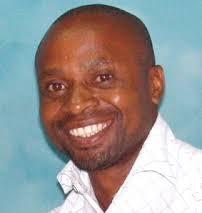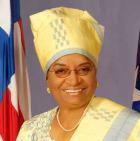HIV/AIDS and Sudan’s Transitions
Today, the report of the AIDS, Security and Conflict Initiative is launched. Almost ten years after the UN Security Council first discussed HIV/AIDS as a threat to international peace and security, the agenda has moved on. Rather than projections made on the basis of alarm, anecdote and surmise, there is now solid evidence on which policy can be made. Early fears that the epidemic heralded political and social collapse have not transpired. But a sense of alarm was not misplaced: there are many reasons for worry. Ten years on, the issue has matured, and evidence demonstrates that with good policy and appropriate programmes, the dangers posed by the epidemic to peace and security can be successfully overcome.
Two sets of challenges are especially relevant to Sudan. One is the risk of HIV transmission during post-conflict reconstruction and security sector reform. The other is the need for strong HIV/AIDS policies among peacekeeping forces.
The ASCI report addresses ten specific challenges for how peacekeeping, peacebuilding and humanitarian response efforts should be better attuned to the risks of HIV/AIDS. Among them are the following:
“¢ How to make the military preference for excluding HIV positive soldiers from demanding operations compatible with human rights and health principles of privacy and voluntary testing? ASCI reframes the testing debate, within the new framework of the “Command Centered Approach” to HIV/AIDS control within the military. Placing responsibility for HIV/AIDS policy at the highest level of command allows for armies to achieve both the highest level of effectiveness and best practices in HIV/AIDS prevention, treatment and care. ASCI urges that the adoption of this approach in UN peacekeeping missions. This is especially relevant for the Sudanese armed forces and the SPLA, but should also apply to UNMIS and UNAMID.
“¢ How to reduce HIV transmission through sexual violence and exploitation? ASCI urges new approaches to this global crisis, including greater attention to HIV risks associated with forced sex, and a new focus on the groups of men who control sex workers and sex trafficking, as a “core group” for HIV transmission. This is a largely taboo topic in Sudan, but demands sensitive policy attention.
“¢ How to prevent an HIV epidemic at the end of a war? New research suggests that the transition from war to peace can increase risks of HIV transmission as refugees go home, soldiers leave the army, relief agencies wind down, and rapid economic growth occurs around key urban centres. ASCI urges that international donors provide funds to cover the gap in HIV/AIDS services between relief and development, and that HIV/AIDS is integrated into disarmament and demobilization efforts. This is an immediate concern in Sudan.
ASCI’s research includes a case study of HIV/AIDS policy in disarmament, demobilization and reintegration (DDR) efforts in South Sudan, conducted by Anyieth D’Awol. This shows how despite assurances to the contrary, HIV/AIDS initiatives have been consistently short-changed in DDR efforts that have themselves been under-funded, truncated and relegated to a low political priority. Since the ending of the war in southern Sudan five years ago, many public health specialists have feared that the combination of demobilizing soldiers, returning refugees, and the increase in mobility and urbanization associated with a peacetime economic boom, would lead to increased risks for HIV transmission. At present, there is little evidence to suggest that those fears have come to pass””but also little evidence in general. HIV is largely unmonitored in South Sudan, and vigilance is needed.
Darfur is less at risk for an HIV epidemic than South Sudan. But the economic boom in South Darfur, the state’s proximity to Central African Republic (which has relatively high HIV, at 5.9-6.7% of the adult population), and the sharp socio-economic inequalities evident especially in Nyala, are all indicators for concern.






